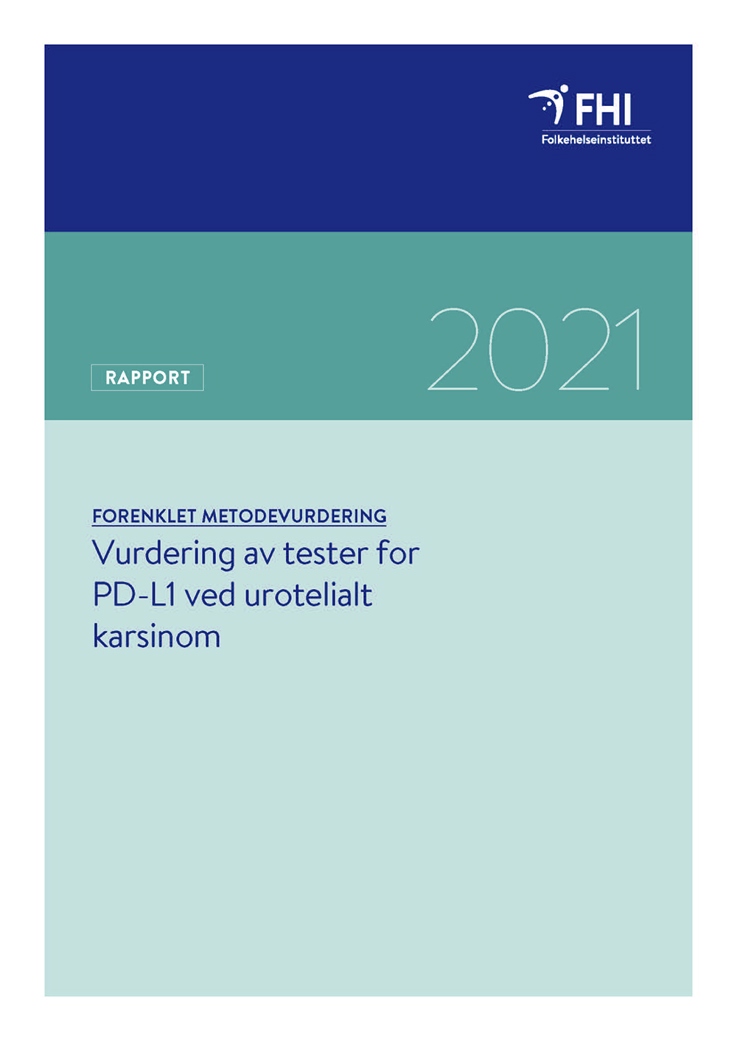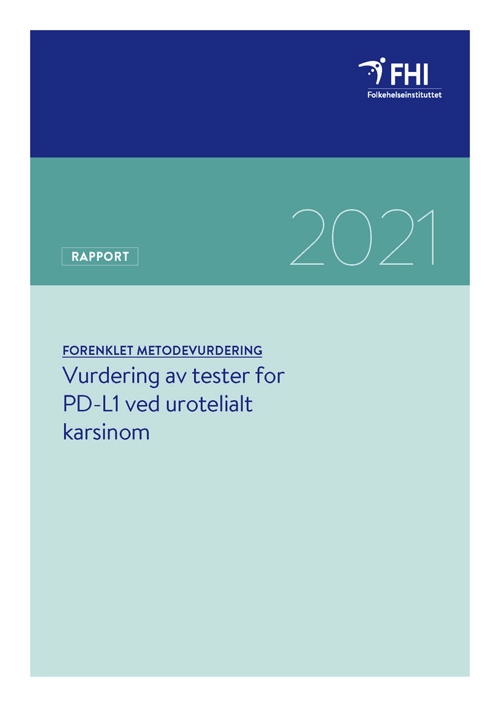Evaluation of PD-L1 assays in urothelial carcinoma: a rapid HTA
Health technology assessment
|Published
The Ordering Forum (Bestillerforum for nye metoder) commissioned the Norwegian Institute of Public Health to evaluate commercial PD-L1 tests for use in treatment of urothelial carcinoma.
Key message
Programmed cell death ligand 1 (PD-L1) expressed on tumor cells can attach themselves to Programmed cell death protein 1 on immune cells and stymie these cells from attacking and neutralizing tumor tissue. Several pharmaceutical agents can prevent this protein coupling and are available for treatment of different types of cancer.
When evaluating the usefulness of immunotherapy, the presence of PD-L1 on tumor cells may anticipate the effectiveness of this type of treatment (prediction). A number of tests and test methods have been designed to ascertain PD-L1 in cancerous tissue.
The Ordering Forum (Bestillerforum for nye metoder) commissioned the Norwegian Institute of Public Health to evaluate commercial PD-L1 tests for use in treatment of urothelial carcinoma. As a response, we have conducted a rapid health technology assessment that summarizes systematic reviews examining the concordance between commercially available test used for PD-L1 detection in different form of cancers. We included two systematic reviews.
- None of the included systematic reviews were limited to PD-L1 testing of urothelial carcinoma.
- Studies on PD-L1 testing of non-small cell lung cancer show high degree of agreement between test results from 22C3, 28-8 and SP263. SP142 showed somewhat lower agreement compared to the other tests.
- There was high degree of agreement between how PD-L1 expression was assessed by different pathologists and in different laboratories.
This rapid HTA summarizes the degree of agreement between commercially available PD-L1 tests. The HTA doesn’t provide any conclusions on the effectiveness of various treatment strategies in the treatment of urothelial carcinoma in adults.

